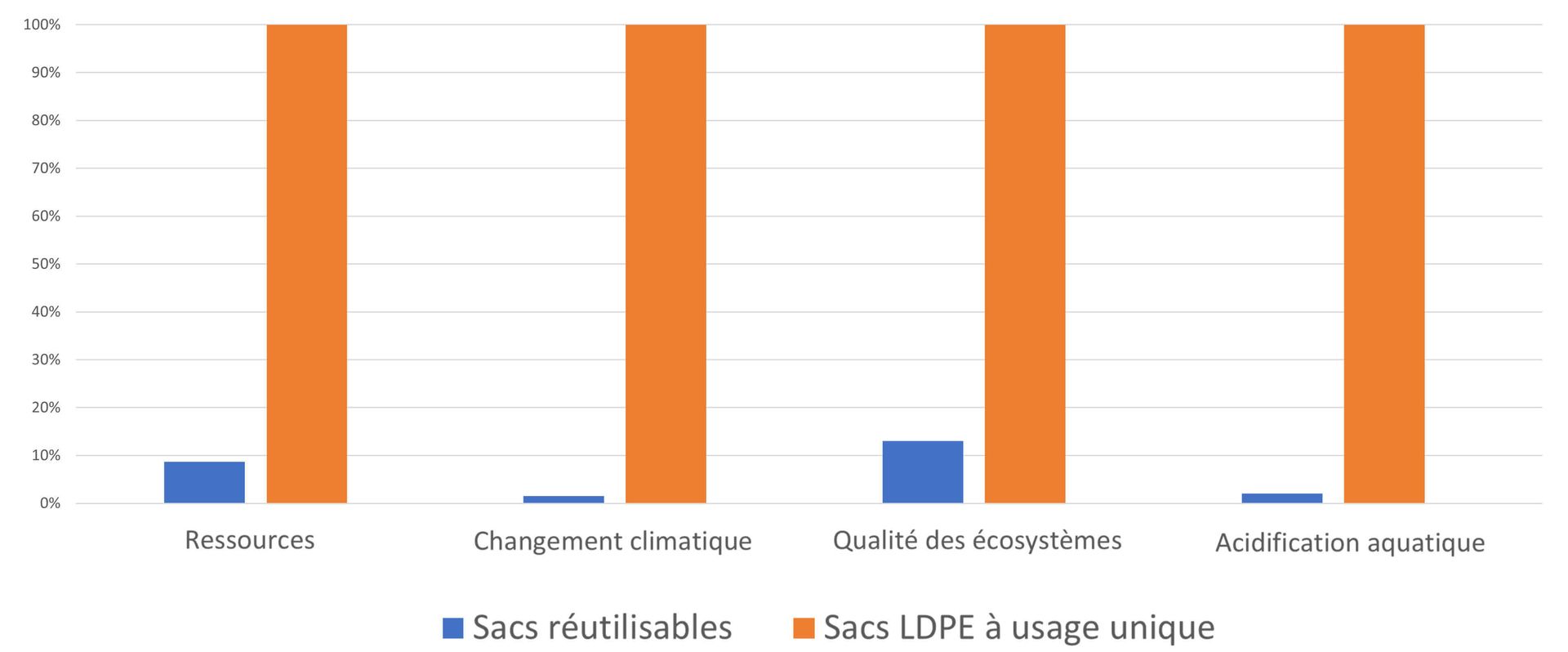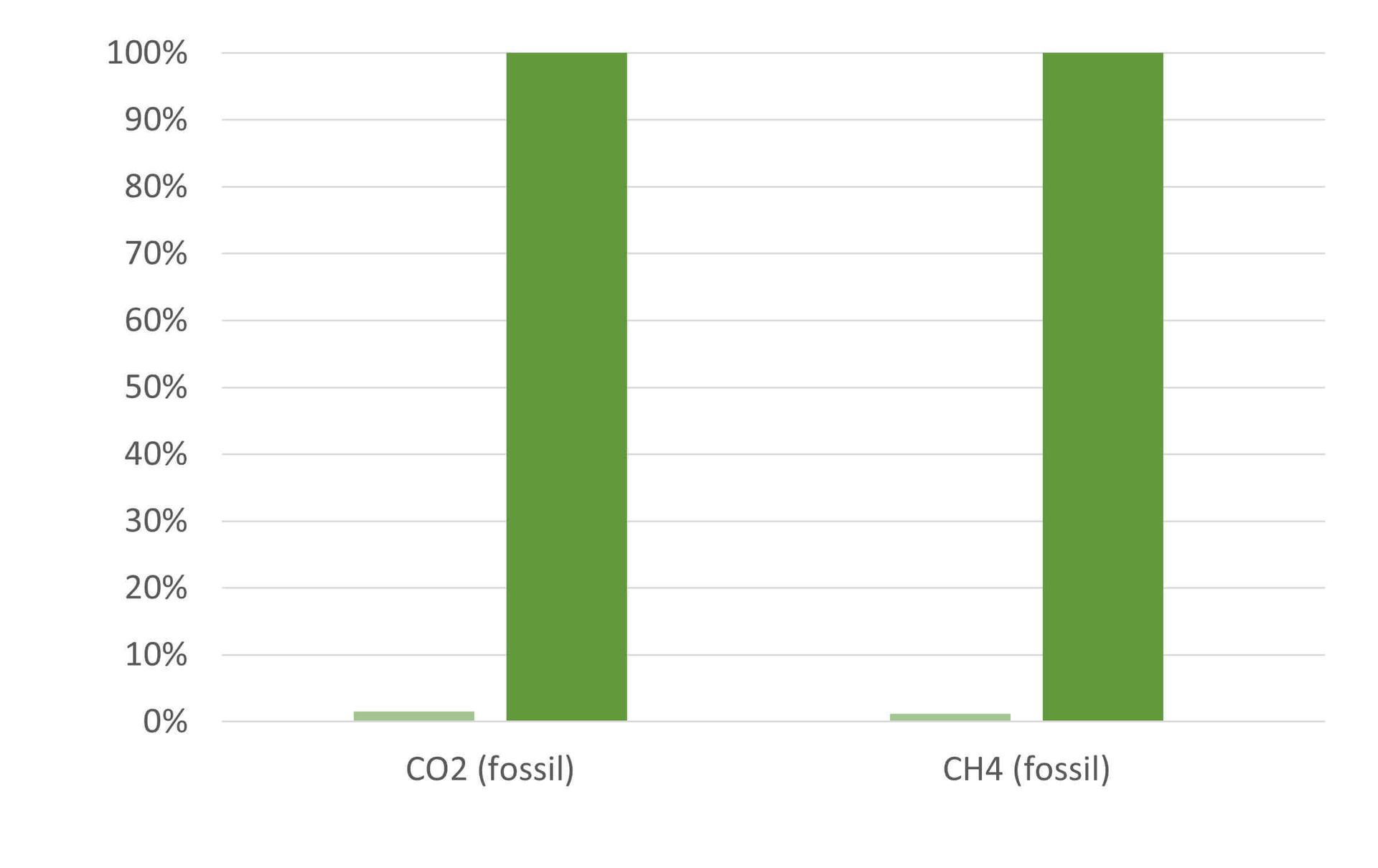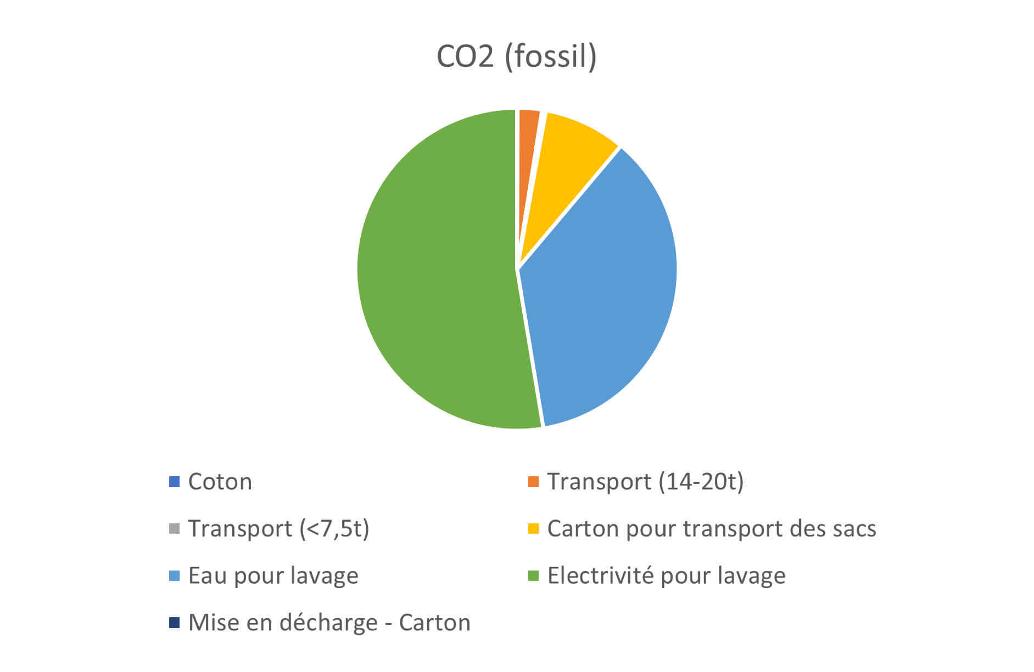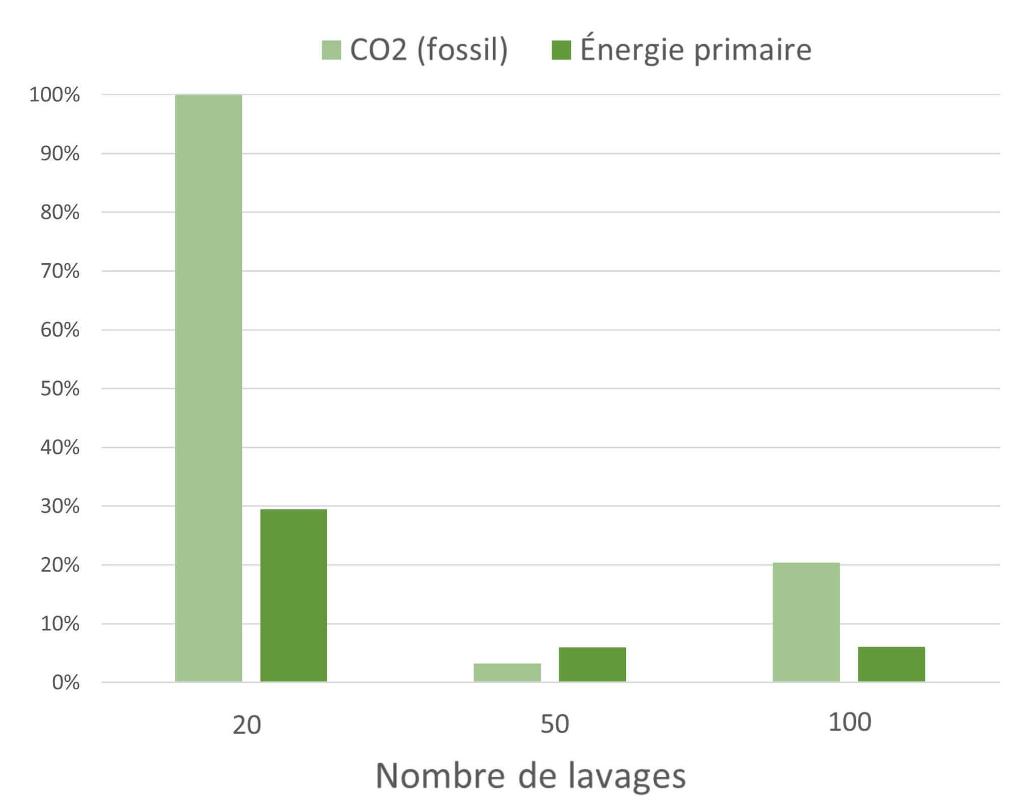Reusable bags are a very environmentally friendly alternative to plastic packaging, certainly for single-use bags. If this is already clear to many, how can we really be sure?
To verify that this solution is environmentally friendly, we use a scientific method; the Life Cycle Analysis (LCA) allows us to evaluate the ecological impact of the use of our bags, compared to the use of single-use plastic packaging in the retail sector.
Here are the clear and complete results of our analysis: there is no hesitation.
Contents:
1. Global comparison of reusable and disposable plastic bags: 10 times better
2. Les résultats détaillés de l'impact écologique du sac réutilisable comme alternative au sac plastique jetable : encore meilleur
3. Elements taken into account in our analysis
4. Economic impact of reusable bags: everyone wins
5. To conclude
Reusable bags have 10 times better environmental impact than disposable plastic bags: global comparison
Enough of the suspense: our reusable organic cotton bag has 10 times less environmental impact than the disposable plastic bag! This is of course an overall assessment.
The graph above shows the relative performance of the reusable bag (blue) compared to the disposable plastic bag (orange). By convention, the bag with the highest impact is rated at 100%. A small bar therefore indicates better performance.
At KissPlanet, we offer all our products in bulk in deposit-refund bags. Once returned, we clean them and reuse them to prepare the next orders. In this way, plastic waste from food packaging and hygiene and cleaning products does not end up in our customers' bins.
The LCA allowed us to choose the best material and the best cleaning and repackaging methods. For example, we use certified organic cotton produced in Turkey for its reduced ecological impact, we have chosen a resistant material for its durability (and thus be able to use it a great number of times), our electricity is 100% of renewable origin, our certified ecological cleaning products are used sparingly, we optimise transport and machine loads, and we fill the bags by hand.
Let's delve deeper.
The reusable bag as an alternative to the disposable plastic bag: detailed ecological impact results
Using our reusable bags contributes 67 times less to greenhouse gas emissions.
Global warming is caused by an excessive concentration of greenhouse gases in the atmosphere, mainly CO2 and methane (CH4). It is therefore important to check the impact of the design, use and end of life of a product on the production of these gases. Using our reusable bags produces 67 times less greenhouse gases than using single-use plastic bags.
67 times less... This solution is therefore essential for us.
To limit the ecological impact of our reusable bags, we optimise each stage of the process.
To achieve this remarkable result, we had to optimise our entire bag usage process. We have analysed the impact of every aspect of our usable bags. Below you will find the contribution of the use and manufacturing stages to the CO2 emission.
To limit the impact on natural resources of using disposable products, reuse is an obvious alternative. Logically enough, in the case of a product that is reused a lot, it is the reconditioning steps (such as washing) that represent the most important contributions to the environment. Above, we see that washing becomes the biggest contributor to CO2 production. Fortunately, this contribution is much lower than the use of disposable bags.
Then we have to optimise each stage of the life cycle of our reusable bag. Here are some examples of the optimisations we have made.
Using renewable electricity allows us to divide our greenhouse gas emissions by 10.
We use 100% renewable electricity. Compared to the average energy mix in Belgium, this improves the emission of greenhouse gases (responsible for global warming) linked to electricity by a factor of 10. So we emit 10 times less!
We optimise the number of bags we wash together. There is an optimum: too few bags per wash means wasted water and energy. Too many bags means using more powerful machines that have to use longer cycles. The optimum for us is about 50 bags per wash.
We have chosen resistant materials. The impact of a reusable item is greater if it can be reused many times and the impact of reuse is lower than the alternative that the item replaces. In other words, collecting and washing our reusable bag is better than using new disposable plastic packaging. By choosing very strong materials (thick cotton and quality recycled polyester thread) and repairing them when necessary, we can use our bags many, many times. The solution of choosing a fragile material and changing them often is bad for the environment.
First of all, we refused to use products derived from petroleum chemistry, for obvious reasons. We also ruled out bioplastics (see our blog on this subject). The massive use of bioplastics does not eliminate the environmental risks with certainty, and the intensive production of plastic from bare plant materials seems a very dangerous and unsustainable choice.
We use certified organic cotton. "Industrial" cotton cultivation uses a lot of water and pesticides. By choosing (certified) organic cotton, we eliminate pesticides from this production and reduce local water consumption by 5.
Elements considered in our analysis
To make a reliable analysis, it is necessary to take into account all relevant elements, without discarding important items and even if this sometimes makes the analysis difficult.
What have we taken into account in our analysis? In accordance with the LCA methodology, we try to consider a maximum of parameters. Thus, we consider
- the respective places of production,
- production or manufacturing methods,
- transport,
- packaging,
- the cleaning process,
- energy sources,
- and of course the number of uses.
Are our estimates accurate? Certainly not, unfortunately, because we have to make assumptions about certain parameters and use average values. Is the conclusion nevertheless valid? Absolutely. We have considered and quantified all important parameters. We carried out sensitivity analyses on these parameters. And the difference between the plastic bag and our reusable bag is such that it is well above all our margins of error.
Reusable bags save money: economic analysis
Choosing the right reusable alternatives to disposable products is a strong gesture for the planet. In the long run, everyone benefits. But is it economical?
If the use of natural resources were properly valued, the answer would be obvious. But today, the very low cost of a plastic bag makes many prefer the apparent ease of disposable plastic packaging. Thin plastic bags are now banned, but look at all the products on the supermarket shelves: plastic is ubiquitous as packaging. Indeed, plastic is an extremely cheap material. Why? Because the cost we pay does not take into account the various impacts of the consumption of non-renewable resources, on water, on greenhouse gas emissions and global warming. This is one of the fundamental problems of our current economic model.
Bulk products are, or should be, cheaper. This is the case at KissPlanet. Consuming bulk products packed in reusable bags is therefore also good for the wallet!
Beyond this comparison, KissPlanet has made choices that favour environmental protection even if they are more expensive. This cost difference is borne by KissPlanet, which derives a lower margin for its activity.
Thus organic cotton is much more expensive than industrial cotton. Choosing to use only renewable electricity still costs more than the average price of the Belgian energy mix. Having your bags made in Belgium rather than in China or Pakistan is more expensive. This is KissPlanet's choice to allow you to consume better.
To conclude
We have made informed choices on a scientific basis with a focus on the environment and ethics. We take the financial responsibility for this as the use of reusable bags for our bulk products is completely free of charge for our customers. Our bulk products are cheaper than their pre-packaged counterparts. But it is the most consistent way for us to offer more sustainable alternatives for domestic consumption.
Want to limit your impact on the environment? Use reusable bulk bags. Now you can do it online at KissPlanet and nowhere else!
This study is the result of a collaboration with bioengineering students from the UCLouvain
References
1. Note relative aux évolutions marquantes sur les marchés de gros belges de l’électricité et du gaz naturel en 2017; https://www.creg.be/sites/default/files/assets/Publications/Notes/Z1719FR.pdf
2. febeg, Production d'électricité nette en Belgique pour l'année 2020; https://www.febeg.be/fr/statistiques-electricite
3. Mix énergétique en Belgique : d’où provient notre électricité ?; https://www.comparateur-energie.be/blog/mix-energetique-en-belgique/




